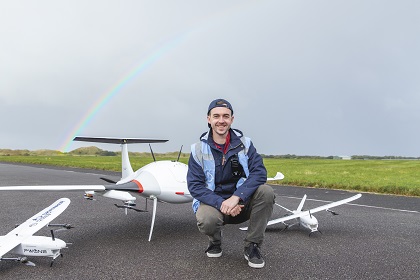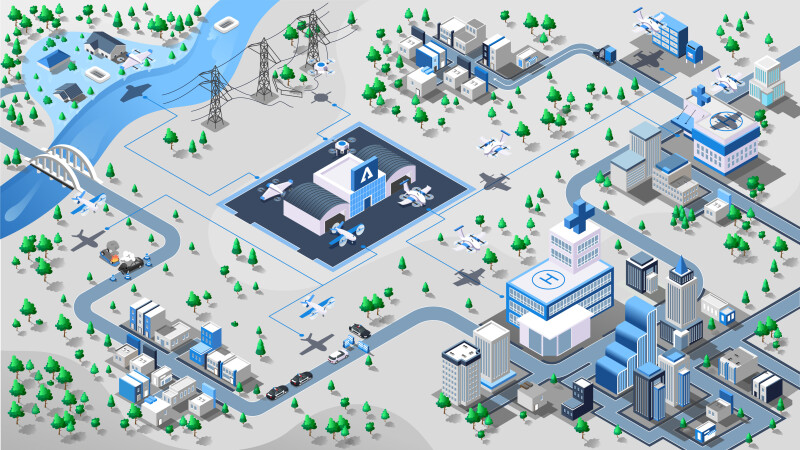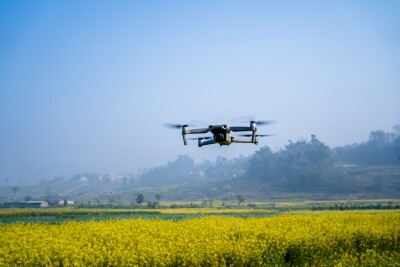Last year, the aerial logistics firm Skyfarer announced plans to create a UAV network to deliver vaccines, blood, and other critical items to medical facilities in the UK. According to Skyfarer Founder and CEO Elliot Parnham, the project is on track to set up an operational delivery hub in October. A three-month trial for the network is set to run from October through December.
“We’ve been in the planning stages for a couple of years, developing the relationships and the authorizations and the technical integrations,” Parnham said. “But we’re pushing on from the planning stages now, and it’s all culminating at the end of this year.”

Parnham explained that this fall’s trial will involve the connection of two hospitals in the West Midlands of the UK, as well as the testing of enhanced network capabilities.
“In the past year, the project has grown from just medical logistics, which is obviously very high value and time-sensitive, but also into three other strands of operations all centralized at a hub,” Parnham reported. Those other “strands” include emergency service support, commercial inspection, and commercial logistics, all of which, he said, require beyond visual line of sight capability.
For the project, Skyfarer is heading a consortium of businesses that have come together to establish an effective delivery model that will enable the expansion of medical deliveries by drone in the UK. Consortium members include the telecommunications company O2, Cranfield University, the UAV and eVTOL company Phoenix Wings, and Altitude Angel, a unified traffic management solutions provider.
In time, Parnham said, Skyfarer and its collaborators hope to “increase the number of spokes within that hub-and-spoke network with other medical stakeholders, as well as commercial logistics stakeholders and the emergency services.”
Increasing the network could lead to the creation of nationwide medical delivery service. “We’ve seen smaller medical delivery services in the UK that serve certain regional areas,” Parnham reported. “What we hope to do is create hubs that offer these same operations for different regions and then connect those hubs together across the country.”
For Parnham, the creation of the UAV medical delivery network will not only enable more individuals to get needed medical supplies more quickly, it may also lead to increased public acceptance of drone technology.
“We've seen a massive shift towards positive perception of drones, and I think it’s because most people can relate to the use case of medical delivery,” he said. “Everyone in their lifetime will utilize a health service in the UK, and in some cases, these could be lifesaving situations. So, if there is technology that can support the efficiency and optimization of that service, then the majority of the public will be very much on board with that. Showing how the technology is having a positive impact on society is a fantastic first step toward the increased utilization of drones.”















Comments